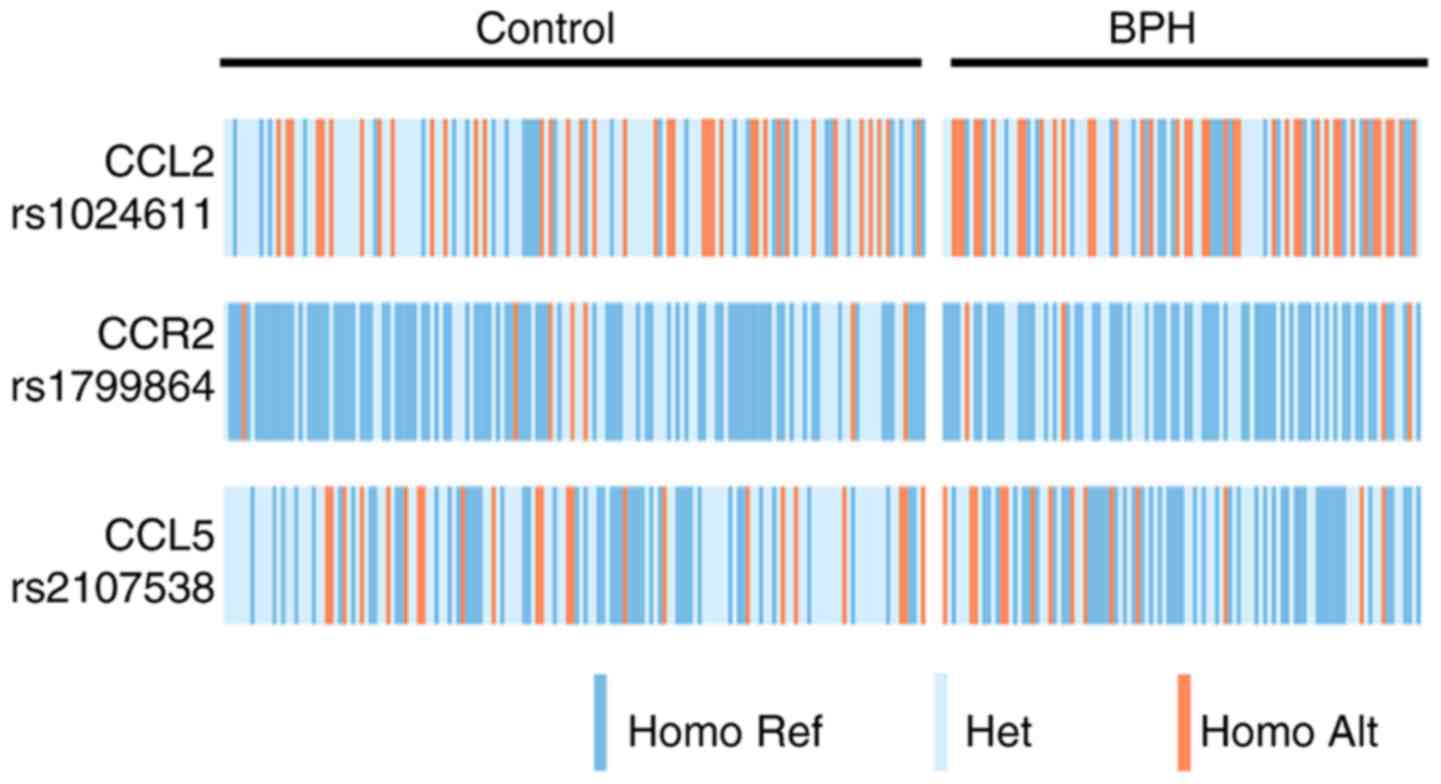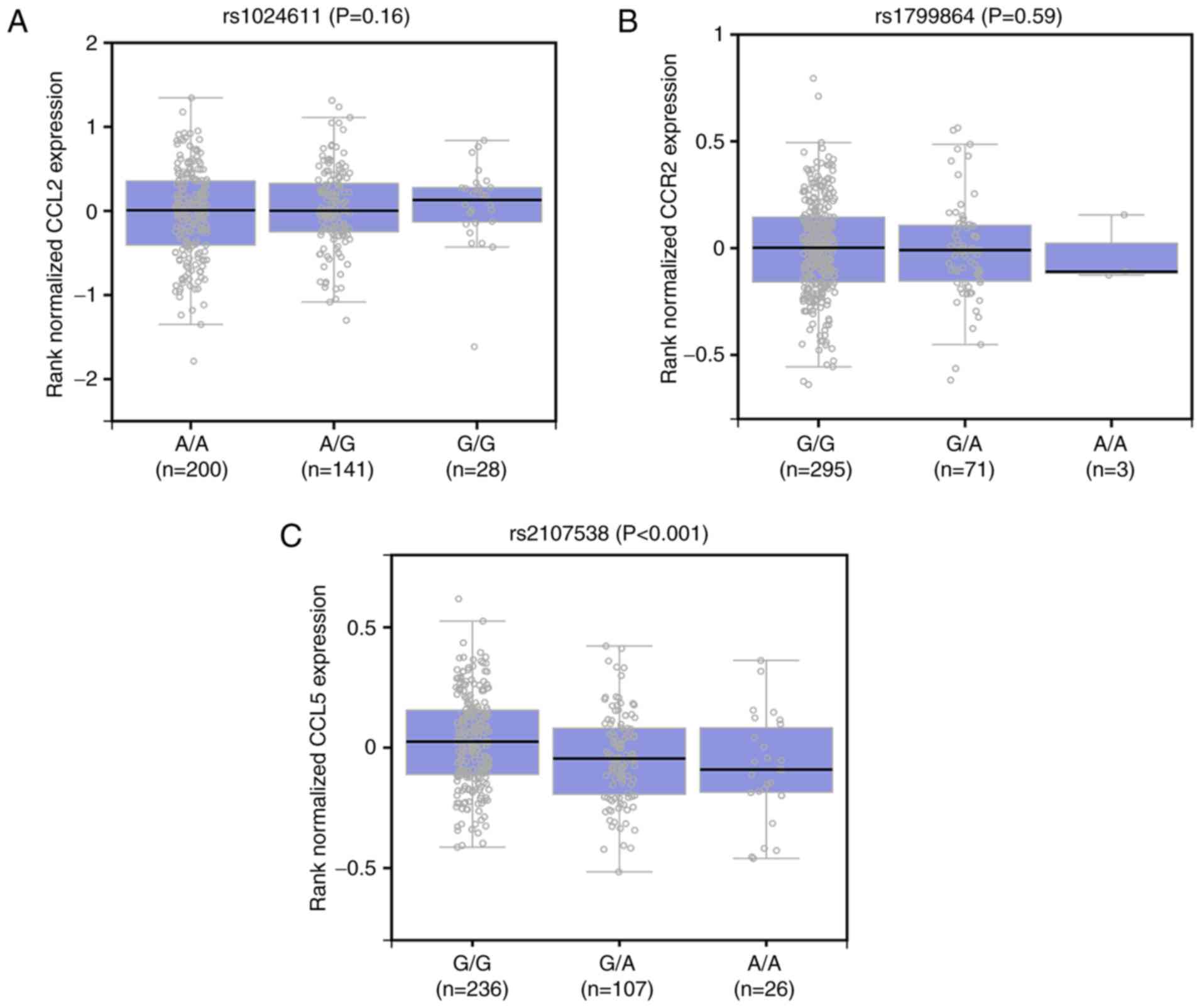|
1
|
Thorpe A and Neal D: Benign prostatic
hyperplasia. Lancet. 361:1359–1367. 2003. View Article : Google Scholar : PubMed/NCBI
|
|
2
|
Roehrborn CG: Male lower urinary tract
symptoms (LUTS) and benign prostatic hyperplasia (BPH). Med Clin
North Am. 95:87–100. 2011. View Article : Google Scholar : PubMed/NCBI
|
|
3
|
He Q, Wang Z, Liu G, Daneshgari F,
MacLennan GT and Gupta S: Metabolic syndrome, inflammation and
lower urinary tract symptoms: Possible translational links.
Prostate Cancer Prostatic Dis. 19:7–13. 2016. View Article : Google Scholar : PubMed/NCBI
|
|
4
|
Fibbi B, Penna G, Morelli A, Adorini L and
Maggi M: Chronic inflammation in the pathogenesis of benign
prostatic hyperplasia. Int J Androl. 33:475–488. 2010. View Article : Google Scholar : PubMed/NCBI
|
|
5
|
Bostanci Y, Kazzazi A, Momtahen S, Laze J
and Djavan B: Correlation between benign prostatic hyperplasia and
inflammation. Curr Opin Urol. 23:5–10. 2013. View Article : Google Scholar : PubMed/NCBI
|
|
6
|
Kramer G, Mitteregger D and Marberger M:
Is benign prostatic hyperplasia (BPH) an immune inflammatory
disease? Eur Urol. 51:1202–1216. 2007. View Article : Google Scholar : PubMed/NCBI
|
|
7
|
Sambyal V, Guleria K, Kapahi R, Manjari M,
Sudan M, Uppal MS and Singh NR: Association of the-2518 A/G
polymorphism of MCP-1 with breast cancer in Punjab, North-West
India. Asian Pac J Cancer Prev. 16:7243–7248. 2015. View Article : Google Scholar : PubMed/NCBI
|
|
8
|
Gao J, Liu X, Wei L, Niu D, Wei J, Wang L,
Ge H, Wang M, Yu Q, Jin T, et al: Genetic variants of MCP-1 and
CCR2 genes and IgA nephropathy risk. Oncotarget. 7:77950–77957.
2016. View Article : Google Scholar : PubMed/NCBI
|
|
9
|
Kouhpayeh HR, Taheri M, Baziboroon M,
Naderi M, Bahari G and Hashemi M: CCL5 rs2107538 polymorphism
increased the risk of tuberculosis in a sample of Iranian
population. Prague Med Rep. 117:90–97. 2016. View Article : Google Scholar : PubMed/NCBI
|
|
10
|
De Nunzio C, Presicce F and Tubaro A:
Inflammatory mediators in the development and progression of benign
prostatic hyperplasia. Nat Rev Urol. 13:613–626. 2016. View Article : Google Scholar : PubMed/NCBI
|
|
11
|
Sáenz-López P, Carretero R, Cózar JM,
Romero JM, Canton J, Vilchez JR, Tallada M, Garrido F and
Ruiz-Cabello F: Genetic polymorphisms of RANTES, IL1-A,
MCP-1 and TNF-A genes in patients with prostate cancer.
BMC Cancer. 8:3822008. View Article : Google Scholar : PubMed/NCBI
|
|
12
|
Sun T, Mary LG, Oh WK, Freedman ML,
Pomerantz M, Pienta KJ and Kantoff PW: Inherited variants in the
chemokine CCL2 gene and prostate cancer aggressiveness in a
Caucasian cohort. Clin Cancer Res. 17:1546–1552. 2011. View Article : Google Scholar : PubMed/NCBI
|
|
13
|
Kucukgergin C, Isman FK, Cakmakoglu B,
Sanli O and Seckin S: Association of polymorphisms in MCP-1,
CCR2, and CCR5 genes with the risk and
clinicopathological characteristics of prostate cancer. DNA Cell
Biol. 31:1418–1424. 2012. View Article : Google Scholar : PubMed/NCBI
|
|
14
|
Mandal RK, Agrawal T and Mittal RD:
Genetic variants of chemokine CCL2 and chemokine receptor
CCR2 genes and risk of prostate cancer. Tumour Biol.
36:375–381. 2015. View Article : Google Scholar : PubMed/NCBI
|
|
15
|
Kaplan SA, Olsson CA and Te AE: The
American Urological Association symptom score in the evaluation of
men with lower urinary tract symptoms: At 2 years of followup, does
it work? J Urol. 155:1971–1974. 1996. View Article : Google Scholar : PubMed/NCBI
|
|
16
|
Homma Y, Yoshida M, Seki N, Yokoyama O,
Kakizaki H, Gotoh M, Yamanishi T, Yamaguchi O, Takeda M and
Nishizawa O: Symptom assessment tool for overactive bladder
syndrome-overactive bladder symptom score. Urology. 68:318–323.
2006. View Article : Google Scholar : PubMed/NCBI
|
|
17
|
Kaplan SA, McConnell JD, Roehrborn CG,
Meehan AG, Lee MW, Noble WR, Kusek JW and Nyberg LM Jr; Medical
Therapy of Prostatic Symptoms (MTOPS) Research Group, : Combination
therapy with doxazosin and finasteride for benign prostatic
hyperplasia in patients with lower urinary tract symptoms and a
baseline total prostate volume of 25 ml or greater. J Urol.
175:217–221. 2006. View Article : Google Scholar : PubMed/NCBI
|
|
18
|
Siami P, Roehrborn CG, Barkin J, Damiao R,
Wyczolkowski M, Duggan A, Major-Walker K and Morrill BB; CombAT
study group, : Combination therapy with dutasteride and tamsulosin
in men with moderate-to-severe benign prostatic hyperplasia and
prostate enlargement: The CombAT (Combination of Avodart and
Tamsulosin) trial rationale and study design. Contemp Clin Trials.
28:770–779. 2007. View Article : Google Scholar : PubMed/NCBI
|
|
19
|
Boyle AP, Hong EL, Hariharan M, Cheng Y,
Schaub MA, Kasowski M, Karczewski KJ, Park J, Hitz BC, Weng S, et
al: Annotation of functional variation in personal genomes using
RegulomeDB. Genome Res. 22:1790–1797. 2012. View Article : Google Scholar : PubMed/NCBI
|
|
20
|
Grzegorzewska AE, Pajzderski D, Sowinska A
and Jagodzinski PP: Monocyte chemoattractant protein-1 gene
(MCP-1-2518 A/G) polymorphism and serological markers of hepatitis
B virus infection in hemodialysis patients. Med Sci Monit.
20:1101–1116. 2014. View Article : Google Scholar : PubMed/NCBI
|
|
21
|
Zhang J, Song Q, Zhu K, Lu J, Xiong X and
Hao F: The association of genetic variants in chemokine genes with
the risk of psoriasis vulgaris in Chinese population: A
case-control study. Medicine. 96:e82832017. View Article : Google Scholar : PubMed/NCBI
|
|
22
|
Nakayama EE, Tanaka Y, Nagai Y, Iwamoto A
and Shioda T: A CCR2-V64I polymorphism affects stability of
CCR2A isoform. AIDS. 18:729–738. 2004. View Article : Google Scholar : PubMed/NCBI
|
|
23
|
Zhao N, Liu X, Wang Y, Liu X, Li J, Yu L,
Ma L, Wang S, Zhang H, Liu L, et al: Association of inflammatory
gene polymorphisms with ischemic stroke in a Chinese Han
population. J Neuroinflammation. 9:1622012. View Article : Google Scholar : PubMed/NCBI
|
|
24
|
Nyquist PA, Winkler CA, McKenzie LM, Yanek
LR, Becker LC and Becker DM: Single nucleotide polymorphisms in
monocyte chemoattractant protein-1 and its receptor act
synergistically to increase the risk of carotid atherosclerosis.
Cerebrovasc Dis. 28:124–130. 2009. View Article : Google Scholar : PubMed/NCBI
|
|
25
|
Singh V, Srivastava P, Srivastava N,
Kapoor R and Mittal RD: Association of inflammatory chemokine gene
CCL2I/D with bladder cancer risk in North Indian population.
Mol Biol Rep. 39:9827–9834. 2012. View Article : Google Scholar : PubMed/NCBI
|
|
26
|
Fujita K, Ewing CM, Getzenberg RH, Parsons
JK, Isaacs WB and Pavlovich CP: Monocyte chemotactic protein-1
(MCP-1/CCL2) is associated with prostatic growth dysregulation and
benign prostatic hyperplasia. Prostate. 70:473–481. 2010.PubMed/NCBI
|
|
27
|
Santos EU, Lima GD, Oliveira Mde L,
Heráclio Sde A, Silva HD, Crovella S, Maia Mde M and Souza PR: CCR2
and CCR5 genes polymorphisms in women with cervical lesions from
Pernambuco, Northeast Region of Brazil: A case-control study. Mem
Inst Oswaldo Cruz. 111:174–180. 2016. View Article : Google Scholar : PubMed/NCBI
|
|
28
|
Nickel RG, Casolaro V, Wahn U, Beyer K,
Barnes KC, Plunkett BS, Freidhoff LR, Sengler C, Plitt JR,
Schleimer RP, et al: Atopic dermatitis is associated with a
functional mutation in the promoter of the C-C chemokine RANTES. J
Immunol. 164:1612–1616. 2000. View Article : Google Scholar : PubMed/NCBI
|
|
29
|
Areeshi MY, Mandal RK, Panda AK and Haque
S: A meta-analysis of the association between the CC chemokine
ligand 5 (CCL5)-403 G>A gene polymorphism and tuberculosis
susceptibility. PLoS One. 8:e721392013. View Article : Google Scholar : PubMed/NCBI
|
|
30
|
Kidd LR, Jones DZ, Rogers EN, Kidd NC,
Beache S, Rudd JE, Ragin C, Jackson M, McFarlane-Anderson N,
Tulloch-Reid M, et al: Chemokine Ligand 5 (CCL5), chemokine
receptor (CCR5) genetic variants, prostate cancer risk among men of
African Descent: A case-control study. Hered Cancer Clin Pract.
10:162012. View Article : Google Scholar : PubMed/NCBI
|
|
31
|
Zhou Y, Lim KC, Onodera K, Takahashi S,
Ohta J, Minegishi N, Tsai FY, Orkin SH, Yamamoto M and Engel JD:
Rescue of the embryonic lethal hematopoietic defect reveals a
critical role for GATA-2 in urogenital development. EMBO J.
17:6689–6700. 1998. View Article : Google Scholar : PubMed/NCBI
|
|
32
|
Robinson JL, Tzou KS, Parker AS, Heckman
MG, Wu KJ, Hilton TW, Pisansky TM, Schild SE, Peterson JL, Vallow
LA, et al: GATA2 expression and biochemical recurrence following
salvage radiation therapy for relapsing prostate cancer. Br J
Radiol. 90:201701742017. View Article : Google Scholar : PubMed/NCBI
|
|
33
|
Rodriguez-Bravo V, Carceles-Cordon M,
Hoshida Y, Cordon-Cardo C, Galsky MD and Domingo-Domenech J: The
role of GATA2 in lethal prostate cancer aggressiveness. Nat Rev
Urol. 14:38–48. 2017. View Article : Google Scholar : PubMed/NCBI
|
|
34
|
Vidal SJ, Rodriguez-Bravo V, Quinn SA,
Rodriguez-Barrueco R, Lujambio A, Williams E, Sun X, de la
Iglesia-Vicente J, Lee A, Readhead B, et al: A targetable
GATA2-IGF2 axis confers aggressiveness in lethal prostate cancer.
Cancer Cell. 27:223–239. 2015. View Article : Google Scholar : PubMed/NCBI
|
|
35
|
Zhernakova A, Alizadeh BZ, Eerligh P,
Hanifi-Moghaddam P, Schloot NC, Diosdado B, Wijmenga C, Roep BO and
Koeleman BP: Genetic variants of RANTES are associated with serum
RANTES level and protection for type 1 diabetes. Genes Immun.
7:544–549. 2006. View Article : Google Scholar : PubMed/NCBI
|
|
36
|
Bracci PM, Skibola CF, Conde L, Halperin
E, Lightfoot T, Smith A, Paynter RA, Skibola DR, Agana L, Roman E,
et al: Chemokine polymorphisms and lymphoma: A pooled analysis.
Leuk Lymphoma. 51:497–506. 2010. View Article : Google Scholar : PubMed/NCBI
|
















